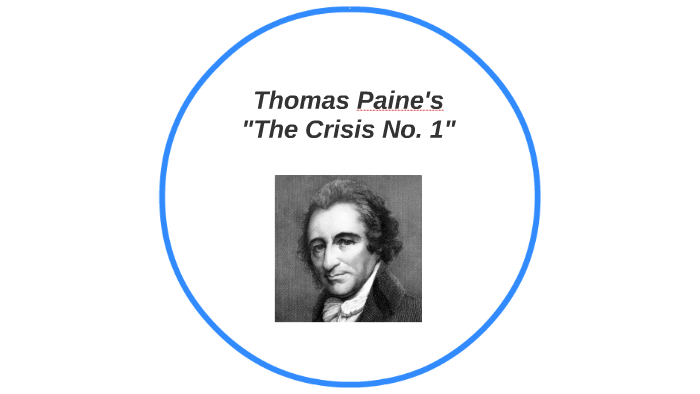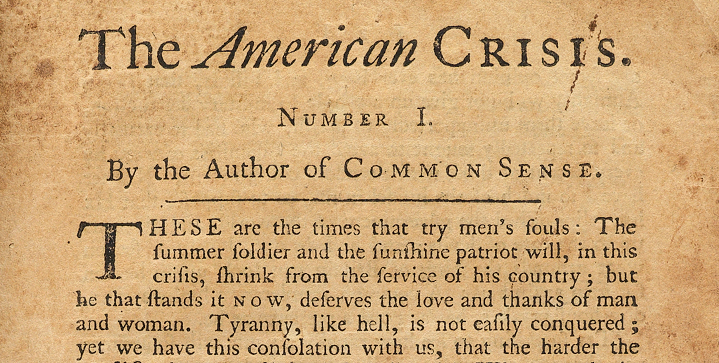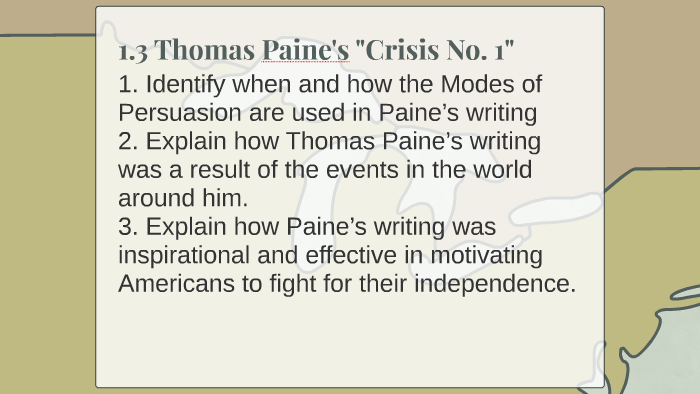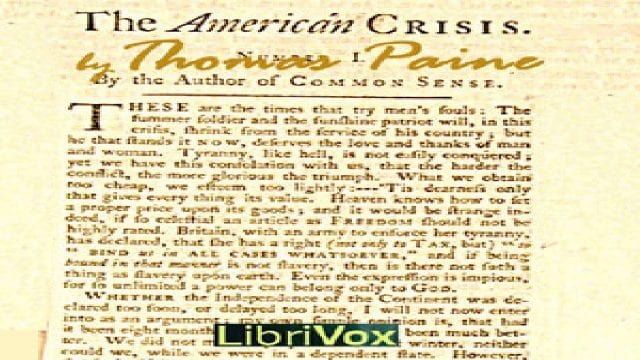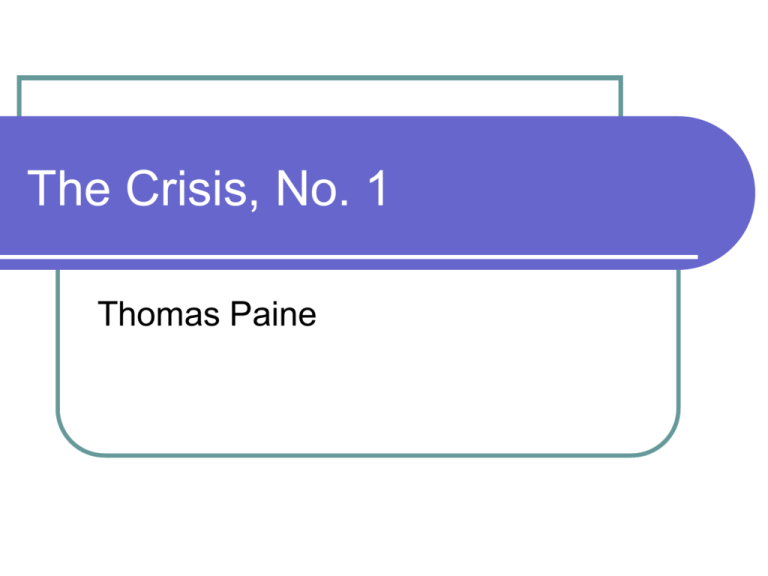Thomas Paine The Crisis No 1 Summary

Imagine you're at a really awkward party. Everyone's uncomfortable, the music's terrible, and the snack bowl is suspiciously empty. Now, imagine someone bursts in, not with a keg, but with the most rousing, inspiring, and slightly sassy speech ever. That, in a nutshell, is what Thomas Paine's "The Crisis, No. 1" was like for the American colonists.
A Pep Talk for Revolution
The year is 1776. Things weren't exactly rosy for the American Revolution. The Continental Army was getting its collective behind kicked by the British. Morale was lower than a snake's belly. People were thinking of packing it in.
Enter Paine, with his quill mightier than any sword (or, well, any musket at that particular moment). "The Crisis, No. 1" wasn't just a pamphlet; it was a verbal smack upside the head, a fiery sermon, and a pep talk all rolled into one.
Summer Soldiers and Sunshine Patriots
Paine wasn't afraid to call people out. He famously scorned the "summer soldier and the sunshine patriot." Ouch! What he meant was, anyone can be brave when things are going well. But only the truly committed stick around when the going gets tough.
Basically, he was saying, "Don't be a fair-weather friend to freedom!" It's like that gym buddy who only shows up for leg day when they're already feeling pumped. Paine wanted the real deal.
He was laying down the truth: Freedom isn't free. It requires sacrifice, grit, and a willingness to endure hardship. He made freedom seems more valuable than anything else.
What He Was Really Saying
So, what exactly *did* Paine argue in "The Crisis, No. 1"? In simple terms, he said the price of freedom is worth fighting for, no matter how high.
He argued that Britain was acting like a bully, trying to steal what rightfully belonged to the colonists. He painted a picture of the horrible life under British rule and asked if they really want to live like that?
Paine believed God was on their side and would not abandon them if they persevered. Which was a pretty big deal back then, when everyone took religion seriously. It added extra weight to his arguments.
A Little Bit Sassy
Paine wasn't just inspiring; he was also a little bit sassy. He had a way of turning a phrase that could make you laugh, even in the face of doom. He used sarcasm and wit to ridicule the British and embolden the colonists.
He understood the power of words. His writing wasn't stuffy or academic. It was raw, relatable, and designed to stir emotions. It was like a tweet from the 18th century, only way longer and way more impactful.
The Impact
"The Crisis, No. 1" was an instant hit. General George Washington ordered it to be read aloud to his troops before the Battle of Trenton. Talk about a motivational speech! It's credited with boosting morale and helping the Continental Army secure a crucial victory.
More than just a battle cry, it was a reminder of what they were fighting for: a better future, a land where they could be free. It reminded them that every shot counts.
So, next time you're facing a challenge, remember "The Crisis, No. 1." Channel your inner Thomas Paine, find your fighting spirit, and tell those "summer soldiers" to step aside. Because with a little bit of grit and a whole lot of belief, anything is possible.
"These are the times that try men's souls." - Thomas Paine
